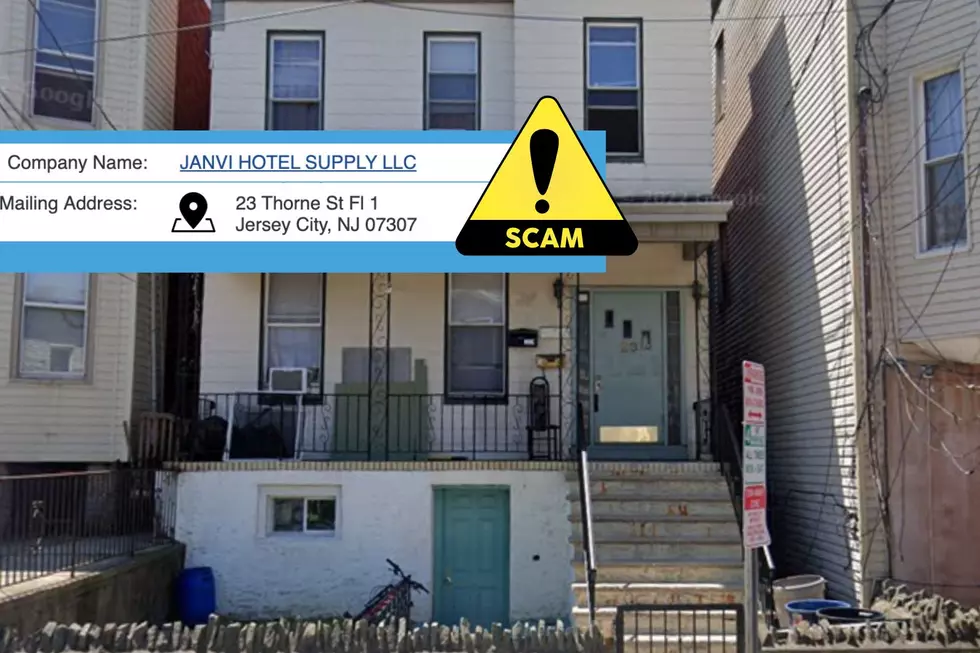
NJ should ban forced probes that re-traumatize rape victims, advocates say
Victims' advocates say laws proposed by New Jersey legislators don't go far enough to protect sex-crime accusers from being re-victimized by a legal process that critics have termed "court-ordered rape."
Last year, lawmakers moved to limit when judges could compel victims to undergo unwanted vaginal or anal examinations. But advocates want New Jersey to ban the practice completely because it only serves to silence victims.
The proposed laws were introduced in June after several sex-crime cases garnered public attention and sensitivity training for court officials because of judges who made comments criticized as insensitive and inappropriate. One of the judges, John Russo Jr., was removed from the bench in May by the state Supreme Court because he once suggested that a woman who was seeking a restraining order could “close [her] legs” to prevent a sexual assault.
A year later, the Legislature has taken no action on the examination bills other than to reintroduce them. The bills — A3249/A3250 and S164 — would allow a judge to order an examination if the defendant proves by "clear and convincing evidence" that the probe could "produce competent evidence that has overwhelming probative worth," that the evidence produced by an exam "could refute or neutralize incriminating evidence or impugn the credibility of a plaintiff’s witness" and that the "need for an examination clearly outweighs the possible harmful consequences to the alleged victim."
The proposed laws would cover both psychological and physical examinations and apply to children and adults in criminal prosecutions as well as lawsuits involving allegations of aggravated sexual assault, sexual assault, aggravated criminal sexual contact, criminal sexual contact and human trafficking involving sexual activity.
Many victims' advocates, however, argue that these exams — unlike rape kits, in which valuable forensic evidence is collected in the immediate aftermath of an assault — would never provide any useful information, especially after any considerable amount of time has passed, leading to the deterioration of forensic DNA evidence. In many cases, victims of sexual assault report come forward months or years later. These examinations, they say, are another reason why victims are reluctant to come forward and press charges.
"These are forced, non-medical, nonconsensual and they should be banned," according to a sex assault survivor who has been lobbying state lawmakers for years to outlaw the forced examinations after she was subjected to one during a civil trial in the late 1990s. New Jersey 101.5 has agreed to identify the former Bergen County woman only as "Lisa" because she was a victim of a sex crime.
"They are being done just to re-traumatize and humiliate and silence victims," she said, adding that she opposes the proposed legislation in New Jersey because the laws would have judges conduct behind-closed-door hearings on the defense requests for such exams.
"That would be taking them out of the light of day — no press, no public, no jury," she said. "Those victims would be completely helpless, voiceless and invisible."
She said New Jersey and other states should look to the law that West Virginia enacted in March, completely banning involuntary pelvic examinations under any circumstance. That law overrides court precedent in that state from a 2009 case in which a judge ordered a 15-year-old girl to undergo a vaginal examination before sex assault charges against her relative could proceed.
Assemblywoman Carol Murphy, D-Burlington, who first introduced the court-ordered examination legislation last year, said she would be in favor of an outright ban in New Jersey but fears that courts would strike down such a far-reaching law.
"While I personally cannot think of any circumstance where an involuntary examination should be ordered, I sought to avoid any possible unintended consequences of this statute later being declared unconstitutional and individuals who were convicted of sexual assault needing to be retried," Murphy said earlier this month in response to questions from New Jersey 101.5.
"I am not against the total ban," Murphy said. "I am currently doing my due diligence to assure that the prosecution of rapists will not be hindered."
Randy Burton, an attorney with Houston-based firm FisherBroyles and a former prosecutor who advocates for victims of sexual violence, said there is no basis for Murphy's constitutional concerns.
"There is no evidence that can be gained by a sexual assault examination of a child or an adult that could have any probative value in a criminal or civil case after 9 days and most time frames for sample collection tend to fall between 96 and 120 hours in the majority of jurisdictions," Burton, founder of Justice for Children, said in an email.
Burton said he's "unaware of any case in any state in the U.S. where a prosecutor has requested a sexual assault exam after charges have been filed" because evidence is usually collected and forensically analyzed by investigators before charges are brought.
He also said it is "inconceivable" that a defense attorney would make a request for a court-ordered examination after prosecutors and investigators have collected evidence in part because "there is no theoretical basis for determining that a woman or child was not raped by conducting an untimely sexual assault exam."
"No right-thinking attorney for the accused would want to risk the possibility of uncovering additional evidence that could implicate his client. If there is no DNA evidence, that does not exonerate his client. And, no prosecutor would ever put the victim […] through the further trauma of another highly invasive sexual assault exam which can have no probative value."
The proposed laws follow a state Supreme Court decision upholding a judge's order in a 1992 case that required a 10-year-old girl to undergo a vaginal exam nine months after she reported being raped. The defense wanted proof that the girl's hymen had been broken — a "virginity test" that has been discredited by the medical community. But the Supreme Court determined that judges could order examinations in cases where such an exam could undercover necessary evidence that benefits the defendant.
State Sen. Gerald Cardinale, R-Bergen, who also is sponsoring the legislation, said through a spokesman that the proposals are about finding a "balance between protecting victims from further trauma and preserving the rights of the accused."
"The senator believes it is important to provide judges with all of the tools necessary to ensure that justice can be served in every situation," his spokesman said earlier this month. "At the same time, the bill places a very high burden on the courts to justify issuing an order for an examination, which ensures that the exams occur only when absolutely necessary."

EDITOR'S NOTE: This article was updated after it was first published May 27 to include further comment.
Sergio Bichao is deputy digital editor at New Jersey 101.5. Send him news tips: Call 609-359-5348 or email sergio.bichao@townsquaremedia.com.
More From New Jersey 101.5 FM









